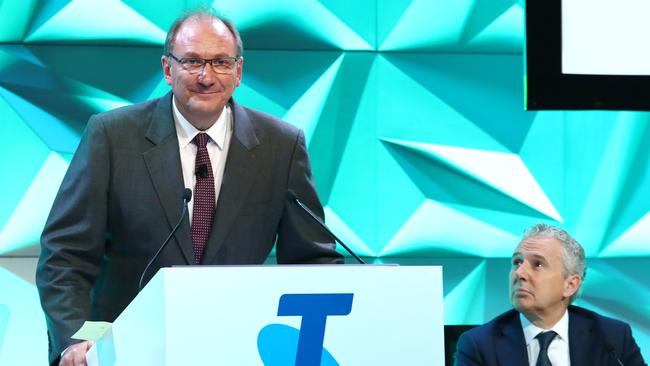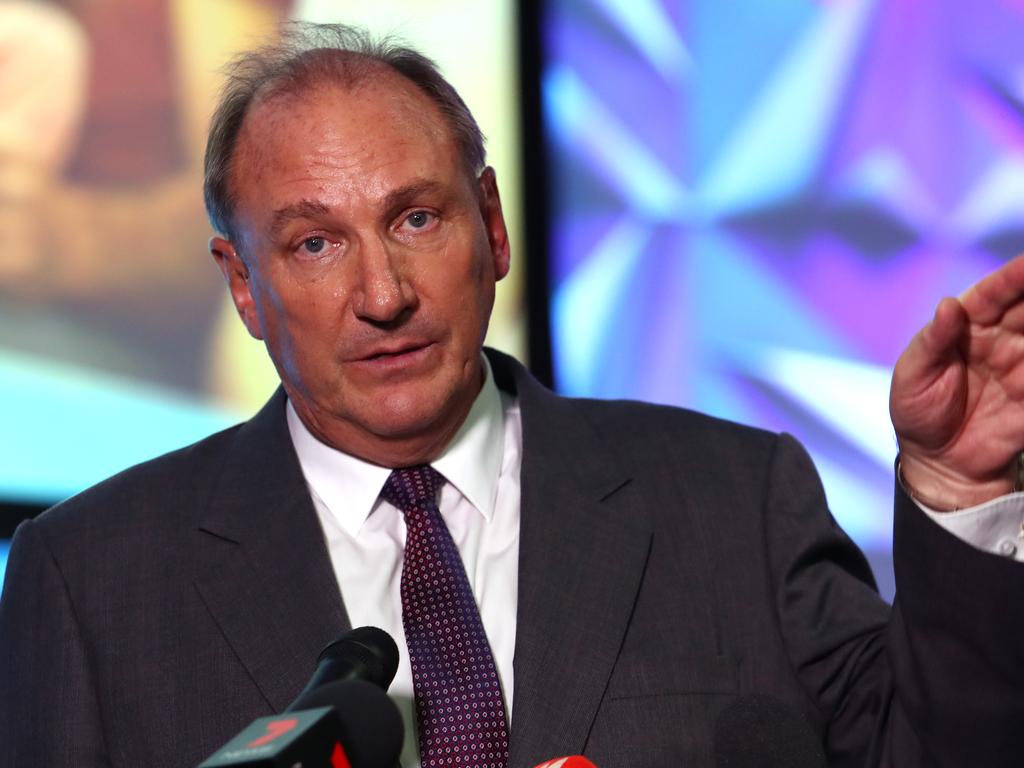Beware CEO drought, Telstra chair John Mullen warns
Intense public and media scrutiny means many potential CEOs no longer want the top job, Telstra’s chairman has warned.

Telstra chairman John Mullen has warned that Australia’s corporate sector is facing a talent drought, with executives shunning CEO opportunities.
Speaking to shareholders on Tuesday, Mr Mullen acknowledged the need for greater corporate responsibility but added that drastic cuts to executive salaries would be counter-productive for Telstra and the corporate sector in general.
“We must never forget that incentive schemes are designed to be an incentive, not a disincentive,” he told shareholders.
Read more | Put NBN back in box: Telstra
“Chairs and directors may come and go, but in the end the single greatest contributor to shareholder value in a business is a talented and motivated management team.
“Today there is a real risk that the media scrutiny, populist criticism and governance challenges are starting to lead talented executives to look for alternative career paths such as private equity,” he added.
Telstra boss Andrew Penn’s $5.1 million pay packet has come under significant scrutiny even as the telco proceeds with its Telstra 2022 turnaround program.
Having received a first strike on executive pay last year, Telstra’s management received far more support from shareholders this time around.
Mr Mullen said that Telstra’s remuneration committee and board had taken the time to consider the feedback from last year’s AGM.
“We have reduced maximum potential remuneration, increased the equity versus cash ratio, extended vesting for restricted shares, expanded the clawback provisions in our equity terms and a number of other measures,” he said.
“We strongly believe these changes strike the right balance between protecting shareholder interests, not overpaying executives but at the same time motivating, incentivising and retaining talented leaders.”
While Mr Penn’s pay packet has increased 34 per cent this year, Mr Mullen said that his remuneration has been trending down to reflect the pressure on Telstra’s business.
“The remuneration that Andy has actually received fell by almost 50 per cent over the previous two years because Telstra was under pressure from a number of external factors over which Andy had little control, including the impact of the NBN.
“Even with the rise this year, therefore, the total remuneration he received is still more than 20 per cent below where he was three years ago.”
A significant portion of Mr Penn’s total remuneration is in form of shares and Mr Mullen said his pay adequately mirrored the experience of shareholders.
“It is a natural reaction for shareholders who have seen their shares reduce in value, to be disappointed and to question whether executives are feeling the same pain as well.”
“However, the share price cannot be the only metric by which we evaluate management performance. External factors can mean that you can have a reduction in a share price despite outstanding management performance, just as you can have an increased share price despite mediocre management performance,” Mr Mullen told shareholders.




To join the conversation, please log in. Don't have an account? Register
Join the conversation, you are commenting as Logout